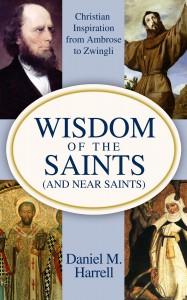Today’s guest post comes from Aaron DeMaster, one of an excellent class of students from Bethel Seminary who recently studied the intersection between theology and science.
As a Christian society we are currently dealing with a cultural tension between science and scripture. Science makes discoveries on nature that sometimes do not match the literal understandings and interpretations of scripture, and many Christians trust that God’s literal word and authority have the upper hand over any scientific discovery. Both of the claims and discoveries for each viewpoint are important in todays church, and have much to teach us about God and his revelation.
If science is the study of nature and what’s around us, then it should be in correspondence to God’s revelation through creation. If scripture is God’s authoritative word, then it is God’s revelation through linguistics. If these two fields are an attempt to understand two different revelations of the same God, they should undoubtedly reveal uniformity. If good science is being done, it should reveal who God is through nature, just as if good theology is being done, it should reveal who God is through scripture.
Since good science and good theology should match, we should approach our interpretations of both with humility. In both fields we have objective data available (God inspired word and nature). As humans, when we attempt to interpret the data, we, without a choice, approach it subjectively and lose the certainty the objective data offers. In the attempt to interpret scripture we have to probe through the intent of the human author, the genre of the writing and who they were writing to. In the attempt to interpret science, we have to assume past patterns, assume that everything is systematized, and decide whether there may be an unseen force.
This is where humility becomes a necessity. With both science and theology, we ultimately want to discover the truth (about God), yet as we get away from objectivity many variables become existent that could fog our interpretation and results. Theologically speaking, it is very difficult to approach a text hermeneutically correct without our prior knowledge on the topic, experiences, and teachings getting in the way. It’s also very difficult to narrow down the intent of an author who wrote something thousands of years ago. Even though we may believe that scripture is fully inspired by the Holy Spirit, there is still a great opportunity for individuality in the author’s style, context, time period, intent, and genre. All these things create blockades to distort our view of certainty. With this said, we have to make educated assumptions as to what God and the author were trying to convey.
Scientifically speaking we run into difficulties when we need to explain things that are in the past and unseen. For science to understand what has happened in the past it needs to assume conditions and patterns. It has to make an educated assumptions on things it can not see.
When we accept that both our understandings of scripture and science are subjective, we should see a lack of complete certainty. This lack of certainty should open up a collaborative discussion between science and theology in an attempt to get to a common objective truth. It also should be used as a “checks and balance” for both fields as we attempt to interpret the information we have available for each field.
In todays tension between science and theology, we should be closer than ever to seeing who God is and what he has revealed to us in nature and scripture. Every disagreement between the two, should encourage us to reexamine our interpretations on both ends. If we truly trust that our God is the God of nature and of scripture, finding uniformity between the two should be the ultimate goal.











